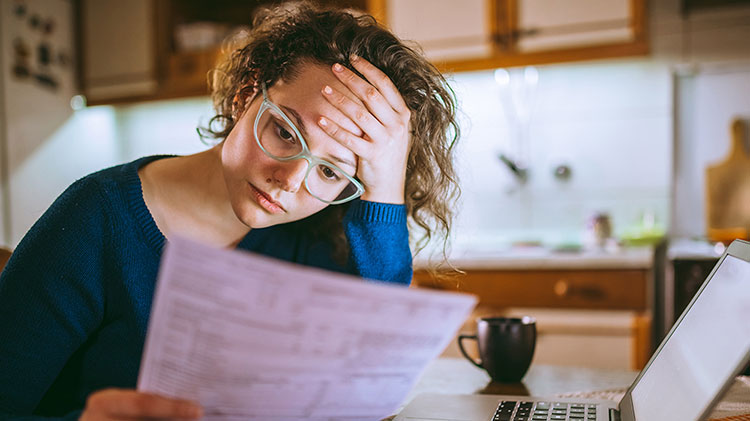What to do if you can’t pay rent
Many people may need short-term help with their rent. Get insights on how to help navigate this situation.
According to a 2024 study by the Joint Center for Housing Studies of Harvard University, a record-high 22.4 million renter households spent more than 30% of their 2022 income on rent and utilities. An unexpected job loss or surprise bills, coupled with little or no savings, could leave many people unable to pay rent. If you or someone you love is faced with this difficult situation, there are some steps you could take to get help.
Things to explore when you can’t pay rent
Understand your lease options
When you find yourself struggling to get your next rent payment together, try reviewing your rental lease. To better prepare, read what your agreement outlines related to penalties may be incurred due to late or missed payments.
Talk to your landlord
Call your landlord before you miss a payment to explain your situation and discuss options. Landlords may waive late fees, negotiate payment plans or even forgive payments to help you avoid being evicted.
Call 211
A free hotline, 211, provides information on health and human services programs available in your area. Callers are connected to trained community resource specialists who can refer them to the appropriate agency or organization for their needs.
Talk to housing counselors
A housing counselor can help renters gain an understanding of their rights and financial assistance resources that may be available to them. To find local counselors, check out The Department of Housing and Urban Development’s website for a list of approved housing counseling services.
Reduce expenses
If you don't have a budget, create one. Comb over it to find ways to cut spending, and ask credit card or loan issuers about hardship programs to reduce your payments. If you need help in this process, work with a government approved credit counseling service.
Explore rental assistance programs
There are many government programs to help assist renters in distress. If your situation is related to a major disaster or crisis, specific long-term rental assistance programs may be available. Additionally, public housing, low-income households, the elderly and those with disabilities may be able to secure long-term housing via government programs like the HOME Investments Partnerships Program or The Housing Choice Voucher Program.
For short-term rental assistance, check The Department of Housing and Urban Development's rental help resources to learn about grants or other assistance from area charities, religious institutions or government agencies. If you have received an eviction notice, local legal aid nonprofits provide services that may be able to help you find a new home, get payment extensions or block your eviction.
Look into personal resources
If you're in a position to borrow from family (and you believe your situation to be temporary), consider a short-term family "loan." When setting up this arrangement, develop a detailed plan to pay the money back that both parties agree on. If you have a 401k, taking an early withdrawal is an option, but considering you could incur a penalty, it should be taken as a last resort.
Consider different living arrangements
It’s worth asking if your landlord has a less expensive place available. They may be able to help you switch to a more affordable apartment. Alternatively, when reviewing your lease agreement, you may have the option to sublet or add roommates which could alleviate financial pressure from your monthly payments. If all else fails, you may need to break your lease but consult your lease agreement first to understand the associated costs.
Rent insecurity can be a frightening situation, but you may be able to find a way to help your situation with the options mentioned above. Before hopping into your next lease, consider taking a look at some tips on entering a rental agreement and some questions you should ask before signing. When you feel ready to rent again, you can get a renters insurance quote now, or give us a few details and a State Farm® agent will reach out to you.




